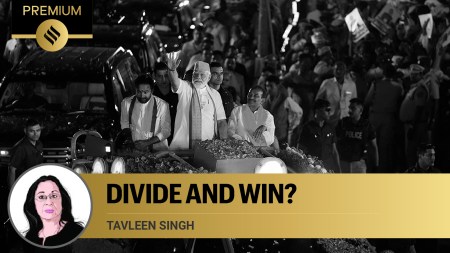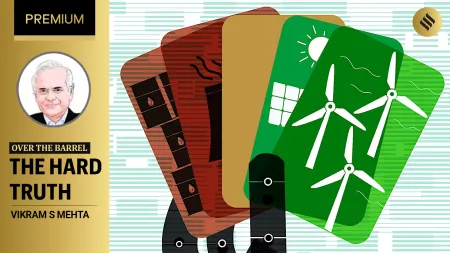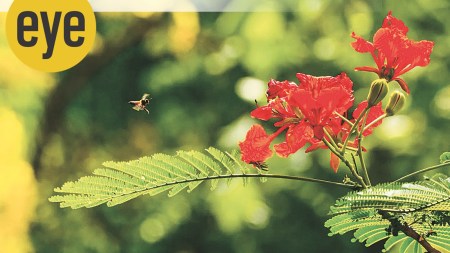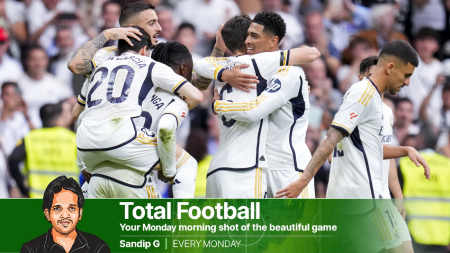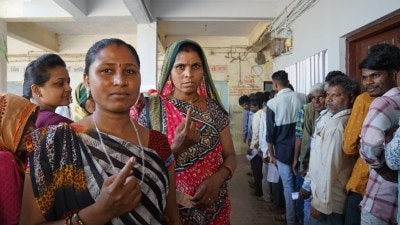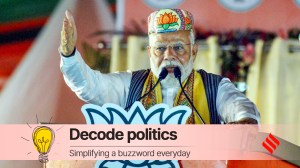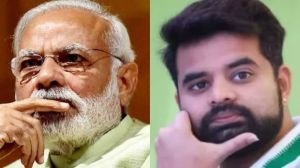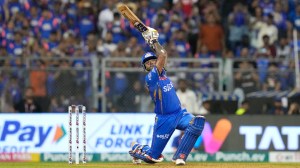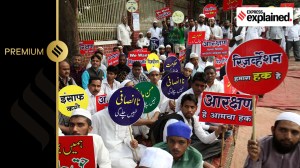- India
- International
UPSC Essentials | Daily subject-wise quiz : Economy MCQs on pharmaceutical exports, exchange traded funds and more (Week 55)
Are you preparing for UPSC CSE Prelims 2024? Check your progress and revise your topics through following quiz on Economy.
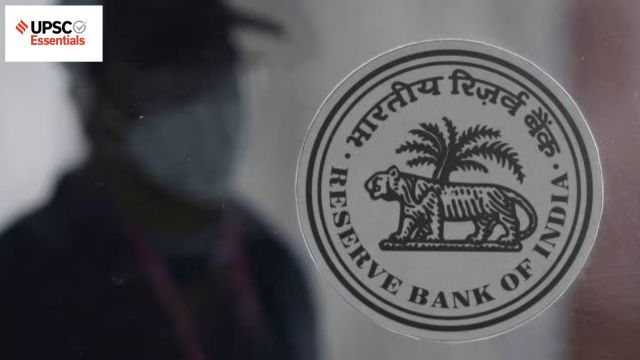 Brush up your knowledge of Economy by solving the MCQs. Find a question on the Reserve Bank of India (RBI) in today's quiz. (REUTERS/File Photo)
Brush up your knowledge of Economy by solving the MCQs. Find a question on the Reserve Bank of India (RBI) in today's quiz. (REUTERS/File Photo)UPSC Essentials brings to you its initiative of subject-wise quizzes. These quizzes are designed to help you revise some of the most important topics from the static part of the syllabus. Each day, we will cover one new subject. Attempt today’s subject quiz on Economy to check your progress. Come back tomorrow to solve the MCQs on International Relations. Don’t miss checking the answers and explanations at the end of the quiz.
🚨 The Indian Express UPSC Essentials brings to you the April edition of its monthly magazine. Click Here to read. Share your views and suggestions in the comment box or at manas.srivastava@indianexpress.com🚨
QUESTION 1
Consider the following statements:
Statement 1: The Reserve Bank of India (RBI) can direct banks to “cease and desist” from onboarding new customers through its online and mobile banking channels.
Statement 2: It prevent the affairs of any banking company being conducted in a manner detrimental to the interests of the depositors or in a manner prejudicial to the interests of the banking company.
Which one of the following is correct in respect of the above statements?

(a) Both Statement 1 and Statement 2 are correct and Statement 2 is the correct explanation for Statement 1.
(b) Both Statement 1 and Statement 2 are correct and Statement 2 is not the correct explanation for Statement 1.
(c) Statement 1 is correct but Statement 2 is incorrect.
(d) Statement 1 is incorrect but Statement 2 is correct.
QUESTION 2
With reference to the India’s pharmaceutical exports, consider the following statements:
1. The pharmaceutical exports from India have decreased in 2023-24 as compared to 2022-23.
2. South Africa is the leading market for pharmaceutical exports from India.
Which of the statement(s) given above is/are correct?
(a) 1 only
(b) 2 only
(c) Both 1 and 2
(d) Neither 1 nor 2
QUESTION 3
With reference to the exchange traded funds, consider the following statements:
1. It is a marketable security that tracks an index or a basket of assets like an index fund.
2. The traded price of an ETF changes throughout the day.
3. They have lower liquidity and higher fees than mutual funds.
4. ETFs are considered to be tax inefficient compared to other mutual fund schemes.
How many of the statements given above are correct?
(a) Only one
(b) Only two
(c) Only three
(d) All four
QUESTION 4
With reference to the effective exchange rate (EER), consider the following statements:
1. The EER is an index of the weighted average of the rupee’s exchange rates vis-à-vis the currencies of India’s major trading partners.
2. Real effective exchange rate (REER) is a summary index that captures movements in the external value of the rupee against a basket of global currencies.
3. Nominal effective exchange rate (NEER) is REER that is adjusted for the inflation differentials between the home country and its trading partners.
How many of the statements given above are correct?
(a) Only one
(b) Only two
(c) All three
(d) None
QUESTION 5
With reference to the India-UAE trade, consider the following statements:
1. The trade between India and the UAE decreased from 2021-2022 to 2022-2023.
2. UAE is India’s second-largest trading partner after the United States.
Which of the statement(s) given above is/are correct?
(a) 1 only
(b) 2 only
(c) Both 1 and 2
(d) Neither 1 nor 2
ANSWERS TO THE MCQs
1. (a)
FYI:
— The Reserve Bank of India (RBI) asked Kotak Mahindra Bank to stop onboarding new customers through online and mobile banking channels, and also barred it from issuing fresh credit cards, with immediate effect.
— The banking regulator, RBI directed Kotak Mahindra Bank to “cease and desist”, with immediate effect, from “onboarding of new customers through its online and mobile banking channels” and “issuing fresh credit cards”.
— It was done under Section 35A of the Banking Regulation Act, 1949, which gives the RBI the power to direct banks “to prevent the affairs of any banking company being conducted in a manner detrimental to the interests of the depositors or in a manner prejudicial to the interests of the banking company”.
— These actions were taken after RBI’s information technology (IT) examination of the private sector lender for the years 2022 and 2023 threw up significant concerns — which the Kotak Mahindra Bank failed to address.
Hence, statement 1 and statement 2 are correct and statement 2 is the correct explanation of statement 1.
Therefore, option (a) is the correct answer.
2. (d)
FYI:
— The country’s medication and pharmaceutical exports climbed 9.67 percent year on year to USD 27.9 billion in 2023-24, despite a 3% drop in total exports in the previous fiscal year. Hence, statement 1 is not correct.
— During the previous fiscal year, the sector’s top five export markets were the United States, the United Kingdom, the Netherlands, South Africa, and Brazil. Hence, statement 2 is not correct.
— The US accounts for more than 31% of India’s total pharmaceutical exports, followed by the United Kingdom and the Netherlands (approximately 3% each).
— India’s pharmaceutical industry is the third largest by volume and the 13th largest by value in the world, producing more than 60,000 generic drugs across 60 therapeutic categories.
— The government has rolled out two production-linked incentive (PLI) schemes to promote domestic manufacturing of key pharmaceutical ingredients and generic medicines.
Therefore, option (d) is the correct answer.
3. (b)
FYI:
— An ETF, or exchange traded fund, is a marketable security that tracks an index, a commodity, bonds, or a basket of assets like an index fund. Hence, statement 1 is correct.
— An ETF, unlike traditional mutual funds, trades like a common stock on a stock exchange.
— The traded price of an ETF fluctuates throughout the day, just like any other stock, as it is purchased and sold on the stock exchange. Hence, statement 2 is correct.
— An ETF’s trading value is determined by the net asset value of the stocks it represents.
— ETFs often offer more daily liquidity and cheaper fees than mutual fund schemes, making them a popular choice among individual investors. Hence, statement 3 is not correct.
— ETFs are considered to be more tax efficient compared to other mutual fund schemes. Hence, statement 4 is not correct.
There are mainly five types of ETFs –
(i) equity ETF,
(ii) bonds ETF,
(iii) commodity ETF,
(iv) International ETF and
(v) sectoral/thematic ETF.
Therefore, option (b) is the correct answer.
4. (a)
FYI:
— From 2014 to the present, the rupee depreciated by 27.6% versus the US dollar, from Rs 60.34 to Rs 83.38, although being marginally higher than the 26.5% from April-end 2004 to April-end 2014.
— India trades with many countries other than the United States. It exports goods and services to other countries and imports from them. The rupee’s strength or weakness is thus determined by its exchange rate with other foreign currencies, as well as the US dollar.
— The EER is measured by an index similar to the consumer price index (CPI). The EER is an index of the weighted average of the rupee’s exchange rates vis-à-vis the currencies of India’s major trading partners. Hence, statement 1 is correct.
— There are two measures of EER:
Nominal EER or NEER
— The NEER is a summary index that captures movements in the external value of the rupee against a basket of global currencies. Hence, statement 2 is not correct.
— The NEER indices are with reference to a base year value of 100 for 2015-16.
Real EER or REER
— The REER is basically the NEER that is adjusted for the inflation differentials between the home country and its trading partners. Hence, statement 3 is not correct.
— If a country’s nominal exchange rate falls less than its domestic inflation rate – as with India – the currency has actually appreciated in “real” terms.
Therefore, option (a) is the correct answer.
5. (d)
FYI:
— The UAE-India CEPA Council (UICC) was launched on the sidelines of the Vibrant Gujarat Summit. The two countries implemented the Comprehensive Economic Partnership Agreement (CEPA) in May 2022.
— The UAE is India’s third-largest trading partner behind China and the US, respectively. Hence, statement 2 is not correct.
— Trade between the UAE and India increased from USD 72.9 billion to USD 84.5 billion between 2021-2022 and 2022-2023, registering an increase of 16 per cent. Hence, statement 1 is not correct.
— Trade relations can achieve even greater heights with improved air, sea and digital connectivity between the two countries.
Therefore, option (d) is the correct answer.
Previous Daily Subject-Wise-Quiz
Daily subject-wise quiz — Polity and Governance (Week 55)
Daily Subject-wise quiz — History, Culture, and Social Issues (Week 55)
Daily subject-wise quiz — Environment, Geography, Science and Technology (Week 55)
Daily subject-wise quiz — Economy (Week 54)
Daily subject-wise quiz – International Relations (Week 54)
Subscribe to our UPSC newsletter and stay updated with the news cues from the past week.
May 07: Latest News
- 01
- 02
- 03
- 04
- 05




